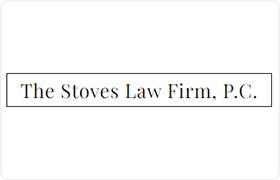Buhl Misdemeanor Lawyer, Alabama, page 2
Sponsored Law Firm
-
 x
x

Click For More Info:
-
The Stoves Law Firm, P.C.
9 Office Park Cir Suite 105 Birmingham, AL 35223» view mapCriminal Defense Legal Expertise You Can Rely On
The Stoves Law Firm, P.C. provides outstanding Criminal Defense and Litigation services to individuals and businesses throughout the State of Alabama.
800-818-9390
Not enough matches for Buhl Misdemeanor lawyer.
Below are all Buhl Criminal lawyers.
John P. McClusky
Real Estate, Wills & Probate, Divorce & Family Law, Criminal
Status: In Good Standing Licensed: 48 Years
Michael J Cartee
Workers' Compensation, Employment, Criminal, Personal Injury
Status: In Good Standing
Olan Scott Hewitt
Criminal, Family Law, Wrongful Death, Medical Malpractice
Status: In Good Standing Licensed: 15 Years
 Jay Stoves Birmingham, AL
Jay Stoves Birmingham, AL Practice AreasExpertise
Practice AreasExpertise
